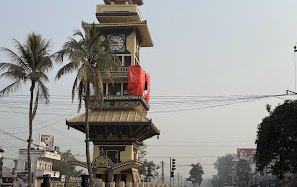
“Pehla saal bemisaal” (roughly translated into ‘First year, fantastic performance’), was the slogan heard throughout Aam Aadmi Party’s (AAP)’s celebrations to mark its one year in power.
But as the party celebrated this feat by organizing its trademarkmohalla sabhas (public meetings) and taking in phone calls to gather feedback, the capital city was littered with heaps of garbage as a result of the agitating Municipal Corporation of Delhi’s (MCD) refusal to carry out their duties. The MCD workers were protesting against the AAP government for not releasing their salary for over two months.
This very much explains Delhi Chief Minister (CM) Arvind Kejriwal’s first year report card. The first year ride has been a rocky one for the civil servant turned politician. While some his initiatives have indeed been unprecedented, he has upset many (including the MCD staffs) by failing to act on his tall promises.
The biggest achievement for AAP has been the high moral ground in which it has conducted its business. According to an India Today – GFK Mode Survey, a majority 51 per cent felt that corruption had reduced in the capitalin the last one year. Despite the on and off controversy regarding it’s ministers and legislators, the party has been successful in exuding a clean image. For Delhiites, who were used to hearing aboutfrequent irregularities under the Congress government, the AAP government has somewhat come across as a beacon of change.
What has earned AAP brownie points is its ability to implement radical legislations.Two of AAP’s most successful moveshave come about during the beginning of its tenure and around the end of its one year in the office. Soon after storming into power, the party acted on one of its major pre - poll promises of freebies by announcing a 50 per cent subsidy on monthly power consumption of up to 400 units anddistribution of 20,000 litres of free water per month to all households. This move won him accolades from Delhiites, who had been facing severe problem of water shortage and rising electricitytariffs.
The party’s ‘odd-even scheme’, as per which vehicles could ply on the road only on alternate days based on their numbers, turned out to be a big hit as well. 81% of Delhiites, who provided their feedback through a Delhi government website and themohalla sabhas, said that they were happy with the rule and wanted it back after a brief piloting phase. Despite environmentalists arguing on whether the odd even rule actually fulfilled its real intention of reducing pollution, the residents felt that the rule provided a solution to the city’s nasty traffic snarls.
The Delhi CM’s stand against the central government’s autocratic moves hasbeen a laudable aspect of his tenure. Although his tussle with the Modi government has been filled with undiplomatic rants and abuses, Kejriwalhas brazenly criticized the high handedness shown by the central government in matters like the appointment of Chief Secretary and the threatening CBI raid in his office.
But leaving aside these achievements, Kejriwal’s tenure has simply been high on rhetoric with a modest performance. As a political novice, he has been unsuccessful in providing solutions to impeding political problems like the agitations of MCD staffs’ and the Delhi government officials’. This has been gradually contributing to the CM’s unpopularity, something which might be fatal.
More worryingly, the Delhi CM and his party haverefused to part ways with controversies. The party suffered a big blow when it’s main ideologue Yogendra Yadav and another prominent member, Prashant Bhusanwere expelledafter they criticized Kejriwal. Not only did this hurt the party’s image, but it showed that party’s focus had swayed from governance to internal rifts.The entire episode also led to a question mark over the party’s coterie politics.
What has been most disappointing about AAP’s tenure has been the passing of a diluted of the much hypedJan Lokpal bill. The bill violated the major promises made during the Jan Lokpalagitation at the Ramlila Maidan, the very movement from which the AAP was born. It completely changed the clauseswhich stated that; the appointment of the Lokpal would be free of political interference, that the Lokpal would be removed only by the judiciary, that it would be in control of an investigative agency of its own and that it would function in a transparent way.
The next few months are a major test for AAP. It remains to be seen if the party will be able to overcome its political noviceness and act on few of its promises immediately, proving to be real beacon of change that it promised to be.
- Ukrainian Crisis And The World (Dis)Order
- Apr 22, 2022
- China’s Cautious Steps In The Graveyard Of Empires
- Aug 18, 2021
- Foreign Aid On The Fence!
- Aug 08, 2021
- Communist Party of China centenary celebrations Reading between the lips
- Jul 14, 2021
- Second Wave Of Covid-19 In India: Deadly Blow To The Economy
- Jun 23, 2021
















